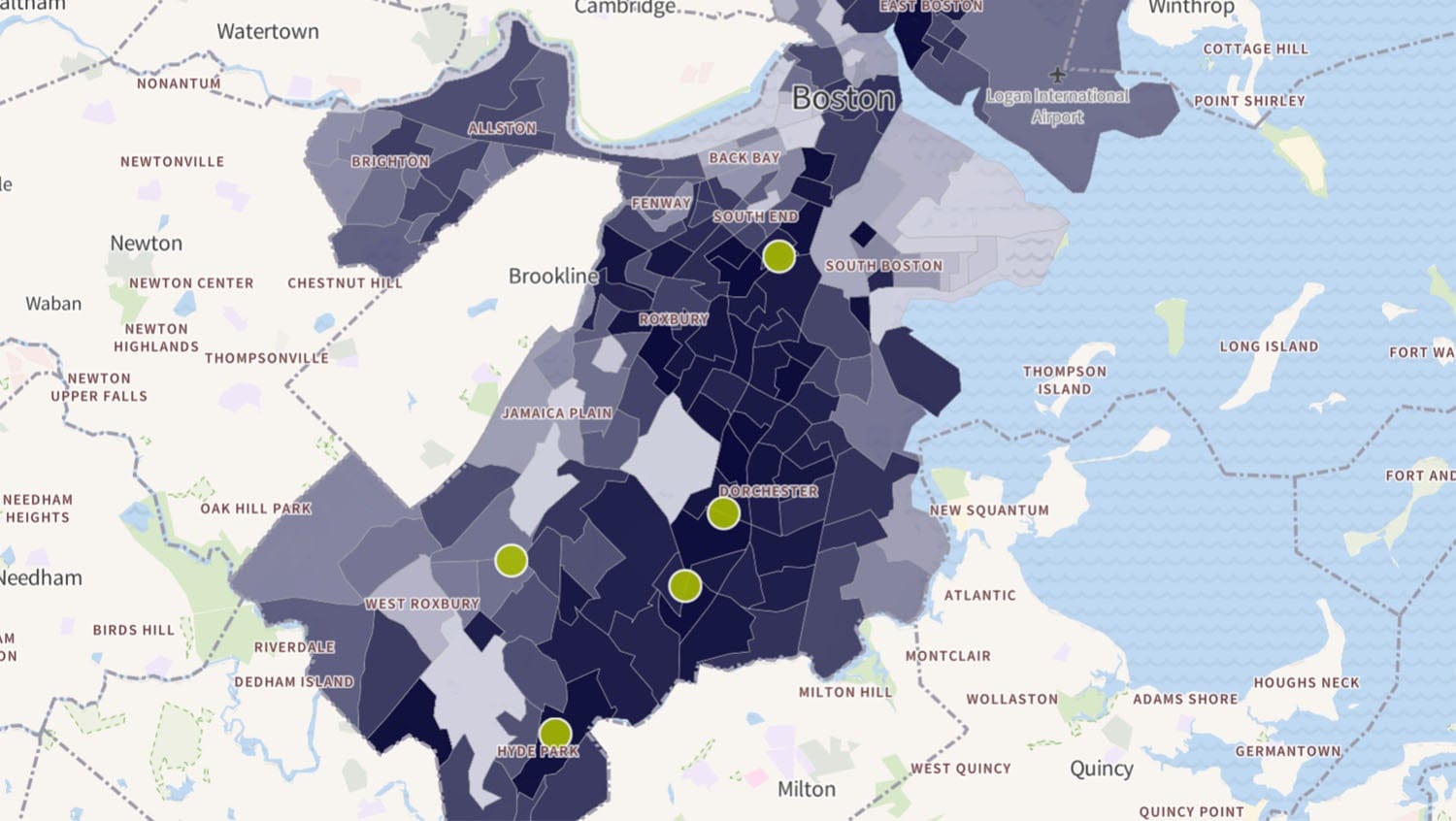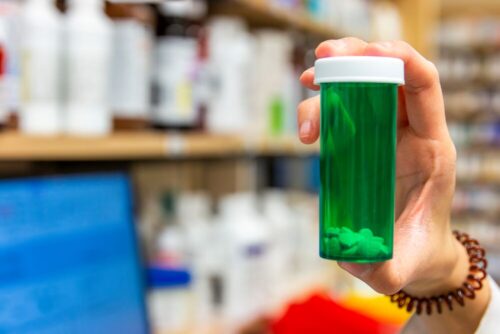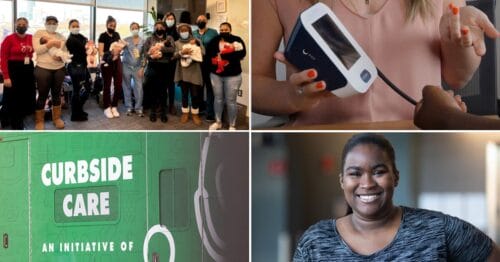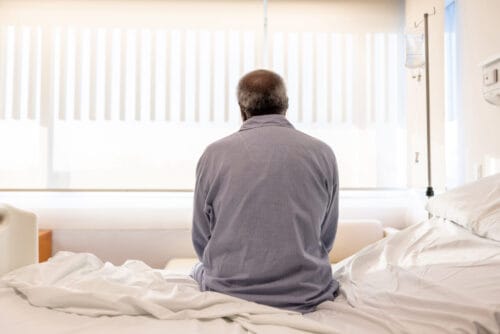COVID-19 Vaccine Access for Boston's Most Vulnerable Communities: MAP
February 17, 2021

Created with Flourish, Jason Yarrington, BMC
Five new COVID-19 vaccination sites have opened in neighborhoods disproportionately impacted by the pandemic.
COVID-19 has disproportionately affected Black and Latinx communities. Statistics from the Centers for Disease Control and Prevention show that Black and Latinx patients are nearly 3 times more likely to die of and about 4 times more likely to be hospitalized with COVID-19 than white, non-Hispanic patients. In Boston, city data from the first surge of the pandemic in spring 2020 showed that despite making up 20% of the city’s population, Black people made up 40% of the virus diagnoses.
Racial inequities in healthcare access and treatment are not new, but the data underlines how vital it is for the most vulnerable populations to have reliable, consistent access to the COVID-19 vaccine.
Boston Medical Center (BMC) is partnering with community health centers and other community organization to stand up public vaccination sites in Roslindale, Mattapan, Hyde Park, and Dorchester, as well as on its own campus. More than 50% of the population in Mattapan, Hyde Park, and Dorchester is non-white (Roslindale’s non-white population is 49%), and all four neighborhoods are in the top 5 communities in Boston in terms of COVID-positive rates, as of January 31.
“We were worried that the communities we serve — higher SVI neighborhoods of Boston, largely neighborhoods of color — would not have the same level of access to vaccination capacity. And so we acted,” says Rob Koenig, senior director of strategy and operations at BMC, who was tasked with developing the strategy for standing up vaccination sites.
BMC consulted the CDC Social Vulnerability Index (SVI), which uses data from the U.S. Census Bureau to identify communities particularly vulnerable to hazards (including infectious disease outbreaks) when planning the locations of its vaccination sites. The SVI helps show areas of Boston that would benefit most from access. Factors include socioeconomic status, minority status, transportation, and housing type, among others.
“We decided the location of the vaccination centers by looking at two things: One, SVI by neighborhood, and two, an estimate of population and how much vaccination capacity a neighborhood would need factoring in nearby health system resources and presence of community health centers, as well as expected capacity for them,” says Koenig, who notes that the site locations were determined in partnership with community health centers (CHCs).
A map of the 5 new Boston COVID-19 vaccination sites
See BMC’s 5 new public vaccination sites located on the map below, shown alongside, alternately, the latest SVI map and a display of population size. Use the dropdown to toggle between the two metrics or hover over a neighborhood to see specific details. The number listed for SVI ranking is a percentile, from 0 to 1, with a higher value indicating greater vulnerability. The lime green circles identify the new vaccination sites.
See the detailed information and addresses for the vaccination sites below:
- Hyde Park COVID-19 Vaccination Site @ Menino YMCA
- Address: 1137 River St, Hyde Park, MA 02136
- In partnership with the Menino YMCA and Greater Roslindale Medical and Dental Center
- Mattapan COVID-19 Vaccination Site @ Morning Star Baptist Church
- Address: 1257 Blue Hill Ave, Mattapan, MA 02126
- In partnership with Morning Star Baptist Church and Mattapan Community Health Center
- Roslindale COVID-19 Vaccination Site @ 17 Corinth Street
- Address: 17 Corinth St, Roslindale, MA 02131
- In partnership with the Greater Roslindale Medical and Dental Center
- Dorchester COVID-19 Vaccination Site @ Russell Auditorium
- Address: 70 Talbot Ave, Dorchester, MA 02124
- In partnership with Codman Square Community Health Center, DotHouse Health, Upham’s Corner Health Center, Harvard Street Neighborhood Health Center, and Harbor Health Services
- Boston Medical Center @ 85 East Concord Street
Community health centers play an important role in vaccine access and addressing vaccine hesitancy among the populations they serve. CHCs act as community leaders that understand their patients and their specific needs, including cultural competence and language services. Moreover, most of the new vaccination sites are within local organizations, not traditional clinics or hospital settings.
“We’re not just doing this on our own,” says Koenig. “Some people may prefer to get vaccinated in their neighborhoods, in places they know and trust. We wanted to be ready to support that, to be in neighborhoods early on to create more time and space to support vaccine acceptance by working with local community organizations and institutions.”
All sites are already up and running, except for the Dorchester site, which opens tomorrow, February 19, and all sites are currently accepting appointments. Eligible patients can visit BMC’s COVID-19 vaccination sites website to schedule.


